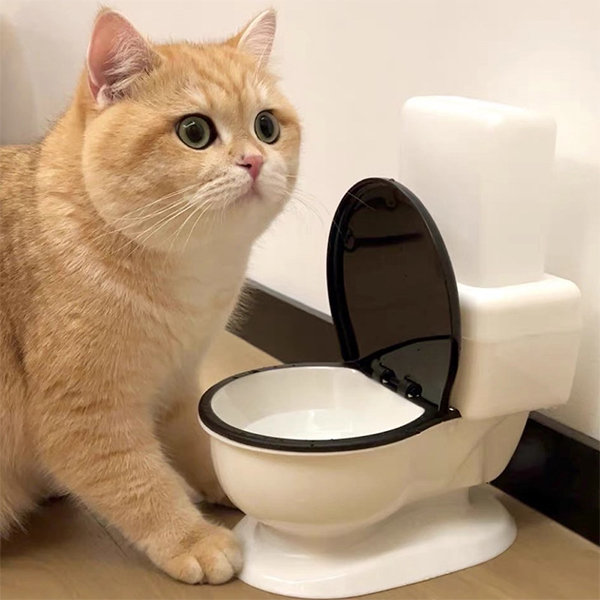Reasons You Should Avoid Flush Cat Poop Down Your Toilet - Important Information
Reasons You Should Avoid Flush Cat Poop Down Your Toilet - Important Information
Blog Article
What're your opinions on Can You Flush Cat Poo or Litter Down the Toilet??

Introduction
As cat owners, it's essential to be mindful of how we deal with our feline buddies' waste. While it may appear hassle-free to purge feline poop down the bathroom, this practice can have detrimental effects for both the setting and human health and wellness.
Ecological Impact
Purging cat poop presents unsafe microorganisms and parasites right into the water system, posing a substantial threat to marine ecological communities. These pollutants can negatively impact marine life and concession water quality.
Wellness Risks
In addition to ecological concerns, purging cat waste can likewise posture health threats to humans. Feline feces might contain Toxoplasma gondii, a parasite that can trigger toxoplasmosis-- a possibly severe health problem, specifically for pregnant women and individuals with damaged body immune systems.
Alternatives to Flushing
Fortunately, there are safer and much more accountable methods to take care of cat poop. Consider the following alternatives:
1. Scoop and Dispose in Trash
The most common method of dealing with cat poop is to scoop it into a biodegradable bag and toss it in the garbage. Make certain to utilize a specialized trash scoop and dispose of the waste without delay.
2. Usage Biodegradable Litter
Select biodegradable cat clutter made from materials such as corn or wheat. These clutters are eco-friendly and can be safely disposed of in the garbage.
3. Bury in the Yard
If you have a backyard, think about hiding feline waste in a designated location away from vegetable yards and water sources. Make certain to dig deep sufficient to stop contamination of groundwater.
4. Install a Pet Waste Disposal System
Purchase a pet waste disposal system especially developed for feline waste. These systems make use of enzymes to break down the waste, decreasing smell and ecological impact.
Final thought
Accountable pet dog ownership extends beyond supplying food and sanctuary-- it additionally involves proper waste administration. By refraining from purging cat poop down the bathroom and choosing different disposal approaches, we can reduce our environmental footprint and safeguard human health and wellness.
Why Can’t I Flush Cat Poop?
It Spreads a Parasite
Cats are frequently infected with a parasite called toxoplasma gondii. The parasite causes an infection called toxoplasmosis. It is usually harmless to cats. The parasite only uses cat poop as a host for its eggs. Otherwise, the cat’s immune system usually keeps the infection at low enough levels to maintain its own health. But it does not stop the develop of eggs. These eggs are tiny and surprisingly tough. They may survive for a year before they begin to grow. But that’s the problem.
Our wastewater system is not designed to deal with toxoplasmosis eggs. Instead, most eggs will flush from your toilet into sewers and wastewater management plants. After the sewage is treated for many other harmful things in it, it is typically released into local rivers, lakes, or oceans. Here, the toxoplasmosis eggs can find new hosts, including starfish, crabs, otters, and many other wildlife. For many, this is a significant risk to their health. Toxoplasmosis can also end up infecting water sources that are important for agriculture, which means our deer, pigs, and sheep can get infected too.
Is There Risk to Humans?
There can be a risk to human life from flushing cat poop down the toilet. If you do so, the parasites from your cat’s poop can end up in shellfish, game animals, or livestock. If this meat is then served raw or undercooked, the people who eat it can get sick.
In fact, according to the CDC, 40 million people in the United States are infected with toxoplasma gondii. They get it from exposure to infected seafood, or from some kind of cat poop contamination, like drinking from a stream that is contaminated or touching anything that has come into contact with cat poop. That includes just cleaning a cat litter box.
Most people who get infected with these parasites will not develop any symptoms. However, for pregnant women or for those with compromised immune systems, the parasite can cause severe health problems.
How to Handle Cat Poop
The best way to handle cat poop is actually to clean the box more often. The eggs that the parasite sheds will not become active until one to five days after the cat poops. That means that if you clean daily, you’re much less likely to come into direct contact with infectious eggs.
That said, always dispose of cat poop in the garbage and not down the toilet. Wash your hands before and after you clean the litter box, and bring the bag of poop right outside to your garbage bins.
https://trenchlesssolutionsusa.com/why-cant-i-flush-cat-poop/

Do you enjoy reading about How to Dispose of Cat Poop and Litter Without Plastic Bags? Try leaving feedback below. We will be glad to know your views about this page. In hopes to see you back again later on. Sharing is good. You just don't know, you might be helping someone out. Many thanks for going through it.
Set Up An Appointment Report this page